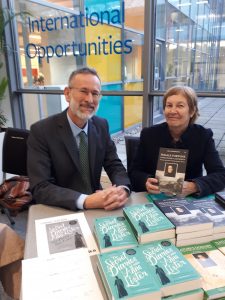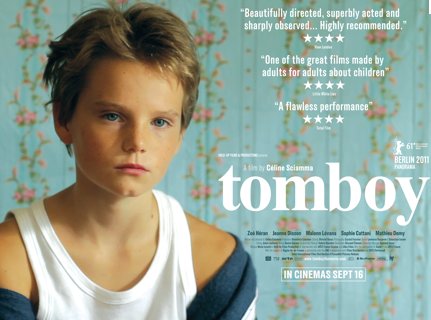Uncategorized
Call for Papers: UCU LGBT+ Research Conference 2021
August 25, 2021
by Lewis Brennen
Please see the below CfP for the upcoming conference being organised by the UCU (University and College Union):
UCU is pleased to announce that the next UCU LGBT+ research conference will be held online on 2–4 November 2021.
This conference follows on from a series organised by UCU bringing together activists and academics, and providing an opportunity to present and engage with LGBT+ research. In 2021 the broad theme is LGBT+ Liberation.
The call for papers is open online here and closes on Monday 20 September 2021 at 10pm.
Proposals of papers will be peer reviewed.
We encourage all who are interested in presenting research on LGBT+ issues to submit a proposal. Supportive guidance can be provided on the process to maximise opportunity for papers to be presented at the conference – please email Seth Atkin (satkin@ucu.org.uk), for further details.
9th STONEWALL LECTURE: The Real Gentleman Jack
July 21, 2020
by Lewis Brennen
Writing Anne Lister: The Real Gentleman Jack was the title of the 2020 Southampton Stonewall Lecture, held at Avenue Campus in February as the key event to mark the university’s LGBTQ History Month.
 Facing an audience of over 120, Dr Jill Liddington from the University of Leeds spoke vividly on a subject on which she is a rare expert, having deciphered and published large sections of the secret diaries of Anne Lister. Sometimes called the ‘first British lesbian’, Anne Lister (1791-1840) was a true Renaissance woman: Yorkshire landowner, coal mine exploiter, mountaineer, scientist, polyglot, European traveller, trained in the classics as well as being a high Anglican and staunch Tory. Her colourful exploits have now been shared with many through the BBC drama series Gentleman Jack. In her lecture Dr Liddington explained the complex task of deciphering the diaries – long passages in code alongside impenetrable handwriting – and their subsequent history and significance for queer heritage. While the diaries were suppressed for 150 years, deemed too shocking for the public gaze, an extra blow came with the Thatcher government’s Clause 28 since this had the effect of silencing publicity about Anne Lister’s homosexuality. In the past year however a tourist industry has erupted around the Lister home in Halifax, and Dr Liddington has a full-time schedule of talks as well as leading the ‘Lister walks’ in Yorkshire.
Facing an audience of over 120, Dr Jill Liddington from the University of Leeds spoke vividly on a subject on which she is a rare expert, having deciphered and published large sections of the secret diaries of Anne Lister. Sometimes called the ‘first British lesbian’, Anne Lister (1791-1840) was a true Renaissance woman: Yorkshire landowner, coal mine exploiter, mountaineer, scientist, polyglot, European traveller, trained in the classics as well as being a high Anglican and staunch Tory. Her colourful exploits have now been shared with many through the BBC drama series Gentleman Jack. In her lecture Dr Liddington explained the complex task of deciphering the diaries – long passages in code alongside impenetrable handwriting – and their subsequent history and significance for queer heritage. While the diaries were suppressed for 150 years, deemed too shocking for the public gaze, an extra blow came with the Thatcher government’s Clause 28 since this had the effect of silencing publicity about Anne Lister’s homosexuality. In the past year however a tourist industry has erupted around the Lister home in Halifax, and Dr Liddington has a full-time schedule of talks as well as leading the ‘Lister walks’ in Yorkshire.
The Stonewall lecture was chaired by Professor Mark Cornwall, who has organized it since 2012. Over £100 was raised for the Stonewall charity and Dr Liddington afterwards signed copies of her two transcribed diaries, Female Fortune and Nature’s Domain.
Film Screening – Tomboy – 7th March 2019
February 28, 2019
by Lewis Brennen
As part of LGBTQI History Month 2019, Modern Languages and Linguistics at the University of Southampton are presenting a screening of “Tomboy” a French film which centres around 10-year-old ‘Mikael’ who, when their parents move to a new neighbourhood, takes the opportunity to explore their gender identity (2011, Céline Sciamma).
Trailer: https://www.youtube.com/watch?v=Jb-Oys-IcWE
Date: Thursday 7th March
Venue: University of Southampton, Avenue Campus 65, Lecture Theatre B
Time: 18.00 (run time 84mins)
The screening is open to all students and staff and will be preceded by a short introduction: Dr Sophie Holmes-Elliott, Lecturer in linguistics, will briefly examine the acquisition and emergence of gendered speech in child language, and Dr Eleanor Jones, Lecturer in Portuguese and cultural studies, will discuss how children’s gender expression can be understood culturally.
The screening is free to attend and will be followed by drinks and discussion in The Crown.
All welcome!
Dr Sophie Holmes-Elliott
To queer or not to queer Shakespeare? – Stonewall Lecture 2019
February 26, 2019
by Lewis Brennen
On Thursday 21st February Professor Bruce Smith (University of Southern California) came to Southampton to deliver the eighth annual Stonewall Lecture. The Stonewall Lecture series is organised by Professor Mark Cornwall and aims to explore the rich heritage that is lesbian, gay, bisexual, transgender and queer (LGBTQ) history, in order to educate the present about the past and to promote social justice and inclusivity. Excitingly, this was the first time that the lecture looked back beyond modern history into the early modern period.

Bruce’s lecture was titled ‘To queer or not to queer Shakespeare? Prospects fifty years after Stonewall’ and he began by reminding us that in 2019—fifty years after the Stonewall Riots that are often seen as marking the beginning of the modern gay rights movement—the question of whether to queer Shakespeare or not seems perfectly reasonable. In 1969, conversely, many would have been aghast at the notion. Bruce outlined an etymology of the verb ‘to queer’, noting that it essentially means to undermine heteronormative ideas of gender and sexuality by examining something in light of the cultural priorities of queer theory. The lecture aimed to queer each of the four meanings of the noun ‘Shakespeare’: 1) the historical Shakespeare, the man named William Shakespeare who lived in England around the turn of the seventeenth century; 2) Shakespeare as author function, in other words the cultural projection of Shakespeare as a variety of figures and identities in different times and places; 3) the collected works of Shakespeare; and 4) Shakespeare as a transnational cultural icon.
Amongst other things, it was pointed out that the historical Shakespeare was very sure of his masculinity but there is not a shred of evidence that he was queer. Questions were asked about why we want Shakespeare as author function to be a queer person and it was noted that the whole dispute over whether Shakespeare was the real author of his plays is very queer, with the Oxfordians accidentally acting as queer critics! Bruce also spoke about a number of the queer characters within the collected works of Shakespeare and the explicitly queer depictions of them in the centuries following. In thinking about Shakespeare as a cultural icon Bruce made the point that it is not uncommon to find Shakespeare depicted in street graffiti and that this in effect brings him ‘down to size’, turning a high cultural icon into low culture, which itself is a form of queering. Bruce brought everything together by reminding us that while we can queer Shakespeare in a number of ways, it is also true that Shakespeare queers us, challenging us to queer our own ideas about gender and sexuality and the linear development of such things.
The lecture was followed by an engaging question and answer session, further discussion at a drinks reception, and a collection for Stonewall, which raised over £100. Many thanks to everybody who attended and many thanks to Professor Smith for coming all the way across the pond to deliver another excellent Stonewall Lecture!
Southampton Stonewall Lecture 2019: Registration Open
January 21, 2019
by Lewis Brennen
Registration is now open for the 2019 Southampton Stonewall Lecture. As a reminder, the lecture is free to attend but registration is vital. To register, and for more information, please click here.
This year’s Stonewall Lecture will be given by Professor Bruce Smith (University of California) on 21 February, 18.00, at the University of Southampton’s Avenue Campus.
Professor Smith’s lecture is titled, ‘To Queer or Not to Queer Shakespeare’. For more information please see the previous blog post, found here.
Southampton Stonewall Lecture 2019, Thursday 21 February: Professor Bruce Smith
January 2, 2019
by Lewis Brennen
The 2019 Southampton Stonewall Lecture will take place on Thursday 21 February, 6.00pm, at Avenue Campus, University of Southampton. As always the event is free to attend but you must register beforehand. More information on how to register will be circulated in due course.
This year’s lecture will be given by Professor Bruce Smith (University of Southern California), who will be speaking about:
To Queer or Not to Queer Shakespeare
‘Queer Shakespeare’? At the time of the Stonewall Riots in 1969 most people would have answered such a question with an astonished ‘What?’. ‘Queer’ was a slur, and Britain’s national bard could not possibly have been one. Fifty years on, the term ‘queer’ has taken on personal, political, and analytical power. From an adjective with a broad meaning, and a noun with a quite specific meaning, ‘queer’ is now a verb. ‘To queer’ something is to question its status, to probe, to reevaluate. In this lively lecture Professor Bruce R. Smith will explore the stages and vagaries of this transition in the meanings of ‘queer’. Special attention is given to the ambiguous status of ‘Shakespeare’. That word can refer to four things: (1) the historical person who was born and died in Stratford-upon-Avon, (2) the body of work he produced as a playwright and poet, (3) the author that we imagine as we read those plays and poems, and (4) the cultural icon that ‘Shakespeare’ has become. Each of these entities can be the object of the verb ‘to queer’.

The annual ‘Southampton Stonewall Lecture’ explores the rich heritage that is lesbian, gay, bisexual, transgender and queer (LGBTQ) history, in order to educate the present about the past and to promote social justice and inclusivity.
Each lecture offers an academic approach to a historical subject, revealing to a broad public audience some of the best recent research on the gay and lesbian past. The lecture builds on fruitful cooperation between the Stonewall charity and the University of Southampton in terms of our shared values and educational engagement with the wider community. Through a greater understanding of discrimination and tolerance through the centuries, we can help to promote tolerance and inclusivity in contemporary British society.
The lecture will be followed by a charity collection for Stonewall.
Philosophy of Sex Poster Display
April 23, 2018
by Lewis Brennen
This Wednesday, 25 April, from 12-1pm, there will be an exciting poster display session in the South Corridor of Avenue Campus, celebrating the fantastic work of students on Dr Fiona Woollard’s ‘Philosophy of Sex’ module. This is part of their assessment for the module, which requires them to critically assess key arguments and ideas in an original and eye catching manner. Every year the students display great creativity and wit and this year looks to be no exception!
Please do drop by during the poster display session. The students will be waiting by their posters to explain their ideas to you. There will also be cake available.
The posters will be on display in the South Corridor until Monday 30 April, so if you cannot make the poster session then do go have a look later this week.
Southampton Stonewall Lecture 2018
April 16, 2018
by Lewis Brennen
On the evening of Thursday 15 February, Professor Alison Oram (Leeds Beckett University) visited Avenue Campus to deliver the annual Stonewall Lecture. This was the seventh Southampton Stonewall Lecture, organised by Professor Mark Cornwall, an annual event dedicated to exploring the rich heritage that is lesbian, gay, bisexual, transgender and queer (LGBTQ) history, in order to educate the present about the past and to promote social justice and inclusivity. 
Alison’s talk was titled ‘Queer Beyond London: Culture and Place in English Cities, 1970s-1990s’ and drew on research from her and Matt Cook’s current AHRC funded research project, ‘Queer Beyond London’. The project explores LGBTQ life in four provincial cities (Manchester, Brighton, Leeds and Plymouth) to challenge the usual London-centric history of queer life. The lecture last Thursday focused on three of those cities—Brighton, Leeds, and Plymouth—exploring why queer people moved to and from those cities, how they made their homes there, how this reflected the queer culture and communities more widely in those places, and how distinct trajectories of queer life and history developed. Alison’s approach here thus drew on a number of approaches, from oral history, to sociology, and urban geography. In doing so, it complimented the 2013 Stonewall Lecture given by George Chauncey on ‘Gay New York’.
Alison revealed the importance of communal living and collective households for queer residents of 1990s Brighton and the potential political radicalism that living in small flats and bedsits could encourage, but also some gender divisions within the queer community and a darker underside of Brighton with homophobia and a dangerous drugs scene. We saw that queer Leeds was a thriving centre of lesbian feminism, but with racial divisions that meant it was not always comfortable for queer people of colour. Moving onto Plymouth, Alison showed how queer culture there reflected the city’s close ties to the military, which encouraged a culture of relative toleration in the city as early as the 1960s. That said, it appears that while many queer residents of Plymouth were not exactly in the closet, they were not quite out and proud either; audience discussion during the following drinks reception reflected on how Plymouth reminded them of 1990s American ‘Don’t Ask Don’t Tell’ culture.
This was a fascinating lecture and it now seems inevitable that Alison’s work on the ‘Queer Beyond London’ project will serve as a much-welcomed corrective to London-centric modern queer history. Thank you very much to everyone involved in organising the lecture and, of course, to Alison for joining us in Southampton for this fascinating talk.
Southampton Stonewall Lecture 2018, Thursday 15th February: Professor Alison Oram
January 24, 2018
by Lewis Brennen
The 2018 Southampton Stonewall Lecture will take place on Thursday 15th February at 6.00pm at Avenue Campus, University of Southampton. The event is free to attend but you must register beforehand. For more information and to register please click here.
This year’s lecture will be given by Professor Alison Oram (Leeds Beckett University), who will be speaking about:
‘Queer beyond London: Culture and Place in English Cities since the 1960s’
How does a sense of place shape ideas of queer identity, politics and community? This lecture draws on the findings of the AHRC-funded “Queer Beyond London” research project which explores LGBTQ life in four provincial cities since 1965 (Manchester, Brighton, Leeds and Plymouth). It challenges the London-centric history of queer life, activism and cultures, showing that while the four cities share similar responses to national milestones, they have had different trajectories in terms of LGBTQ activism and community-building. For over half a century urban queer identities have been tied into distinct migration patterns, place-specific types of home-making, and new sexual politics.
Alison Oram is Professor of Social and Cultural History at Leeds Beckett University. Her research focuses on lesbian and queer histories in 20th century Britain and on how these are represented in heritage. She led the “Pride of Place: England’s LGBTQ Heritage” project for Historic England in 2015-16, and is co-investigator on “Queer Beyond London” with Professor Matt Cook.
Her books include: “Her Husband was a Woman!” Women’s Gender-Crossing and Modern British Popular Culture (2007) and The Lesbian History Source Book: Love and Sex Between Women in Britain 1780-1970 (2001: co-authored with Annmarie Turnbull).
The annual ‘Southampton Stonewall Lecture’ explores the rich heritage that is lesbian, gay, bisexual, transgender and queer (LGBTQ) history, in order to educate the present about the past and to promote social justice and inclusivity. Previous speakers have included Professors George Chaucey, Laura Doan, and Dagmar Herzog.
Each lecture offers an academic approach to a historical subject, revealing to a broad public audience some of the best recent research on the gay and lesbian past. The lecture builds on fruitful cooperation between the Stonewall charity and the University of Southampton in terms of our shared values and educational engagement with the wider community. Through a greater understanding of discrimination and tolerance through the centuries, we can help to promote tolerance and inclusivity in contemporary British society.
The lecture will be followed by a charity collection for Stonewall.
CFP: ‘Publishing Queer / Queer Publishing’
September 6, 2017
by Lewis Brennen
A really interesting conference, titled ‘Publishing Queer / Queer Publishing’, is to to be held on 16th March 2018 at Senate House, University of London. Details of the CFP can be seen here:
The conference forms part of the ‘Queer Between the Covers: Literature, Queerness, and the Library’ exhibition and events season at Senate House Library, which will run from January – June 2018. More details of the full season will be available soon.
